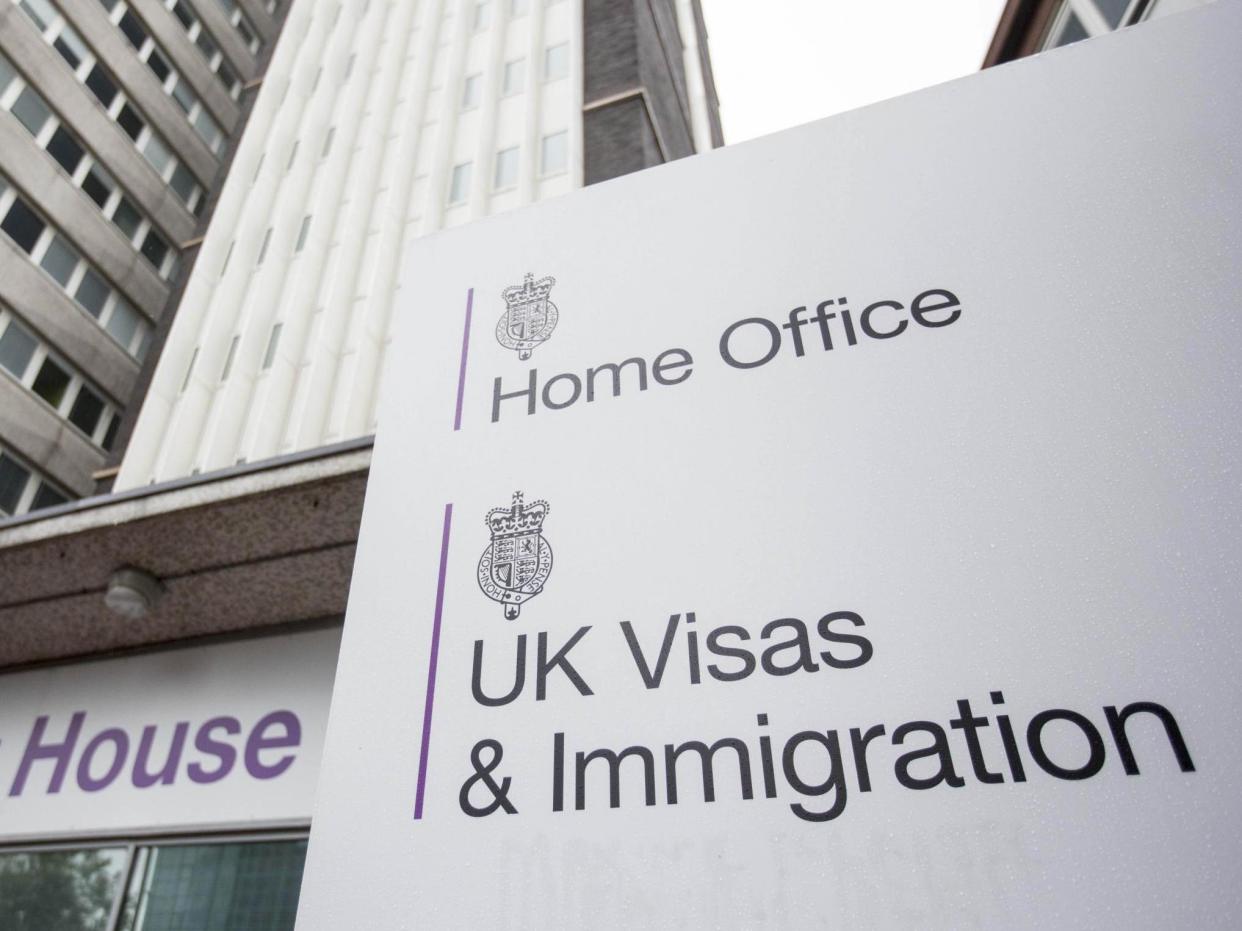Home Office failed to ensure innocent students were not wrongly detained in cheating scandal, report finds

The Home Office failed to ensure innocent people were not wrongly deported in an operation which saw more than 2,400 students removed from the country as a result of cheating allegations in English language tests, a major report has found.
The National Audit Office (NAO) launched an investigation earlier this year after it emerged almost 34,000 international students had been accused of cheating in English language tests, and with no proper right to challenge the decision, told they had no right to stay in the UK.
They were targeted after an investigation by the BBC’s Panorama in 2014 exposed systematic cheating at some colleges where candidates sat the Test of English for International Communication (Toeic), one of several that overseas students can sit to prove their English language proficiency, a visa requirement.
The Independent revealed in February that some students were still being detained and were living in “terror” despite not being involved in the scandal.
In its report, published on Friday, the NAO states that while the Home Office acted “vigorously” to exclude individuals and shut down colleges involved in the cheating scandal, it failed to take an “equally vigorous” approach to protecting those who did not cheat but who were still caught up in the process.
Campaigners welcomed the findings, saying the fiasco had ruined the lives of tens of thousands of innocent students “stripped of their rights”, “drowning in debt” and “forced to bear the black mark of fraud on their name”.
The report reveals 2,468 people had been forcibly removed from the UK due to the scandal and that the number was continuing to rise, while 4,157 people accused of cheating have now been granted leave to remain – with hundreds more still fighting legal battles.
The NAO raises concerns about the government’s course of action against Toeic students, saying it carried with it the possibility that some of those affected might have been “branded as cheats, lost their course fees, and been removed from the UK without being guilty of cheating or [being given] adequate opportunity to clear their names”.
Until November 2017, the government spent £21m on this issue, including £9m on immigration enforcement and £5.5m on appeals and judicial reviews, according to the report.
The report adds: “For two years the department revoked the visas of anyone with an invalid test, without expert assurance of the validity of voice recognition evidence.”
Labour MP Stephen Timms, who has been campaigning on the issue, said: “The NAO has confirmed – as many have been pointing out for years now – that ‘those affected might have been branded as cheats, lost their course fees, and been removed from the UK without being guilty of cheating’.
“Thousands have been unfairly penalised, with catastrophic consequences for many. The home secretary has promised an oral statement to parliament about this scandal. He must now give those affected, who remain in the UK, a chance to clear their names – for example, by offering them a fresh English test.”
One of those affected is Namzul Chowdhury, who came to the UK from Bangladesh in 2009, and was doing a post-grad diploma in business management when he was accused of cheating on the Toeic test.

The 30-year-old, who speaks clear English, said “everything was fine, perfect” until 2015, when he was told an application to extend his student visa had been refused because of alleged cheating in an English language test he sat in 2011.
“It said my visa had been refused and I had 14 days to leave the country. They said it was because I had cheated. No appeal rights. My world broke down,” he told The Independent.
Mr Chowdhury was later told he must report to the Home Office every two weeks, and his right to work or study was revoked. After complying with these rules for two years, while trying to fight his case in court, the west London resident was detained.
“They took my jacket, my phone – all my belongings. She asked me some questions. Then she went away and after five minutes came back with two guards. She said you’re going back to Bangladesh tonight at 8pm.
“I felt like I was in the middle of ocean. They wouldn’t let me call my solicitor, even though I had an ongoing court case. All these things were going through my mind. What would I say to my family?
“I was crying, shaking and everything. I can’t explain what I was going through, I felt like my life was finished, done.”
Mr Chowdhury was driven to Heathrow. Hours before the flight, he was eventually allowed to contact his solicitor, and within minutes of departure time, he was told his ticket had been cancelled.
The Bangladeshi national was taken to The Verne immigration removal centre (now a prison) in Dorset, where he was held for a week.
“I knew there were criminals there. I stayed in my room except at meal times. I felt like I had murdered someone. I was very isolated,” he said. “I’ve blocked this chapter of my life from my memory. I’ve never done anything wrong in my life, I can proudly say that.”
Four years after he was accused, Mr Chowdhury is still fighting to clear his name, and has spent more than £7,000 on legal fees to do so.
“Every day it’s like I’m breaking down. From the first day I was fighting, but now it’s like I’m losing hope. I’m getting older. It feels like my future is disappearing,” he said.
“By now I could have a good job, have a family, I could look after my parents. My dad has had two heart attacks in recent years, and I haven’t been able to visit him.”
The 30-year-old, an only child, said he had not been able to tell his parents what was happening: “How can I tell my parents? They sent me here for my future. How will I explain to them that I’ve been accused of cheating?
“Every time my mum calls she asks what is happening, why are you not coming? But if I want to go back, I have to go forever. And I wouldn’t be able to go anywhere else because of this allegation.”
Nazek Ramadan, director of Migrant Voice, which has been campaigning since 2017 alongside many of the students affected, said the NAO report proved that the Home Office had “failed to scrutinise the evidence” and “shockingly chose to accept it at face value, despite multiple significant flaws in the data”.
“Thousands of people have been criminalised and their lives torn apart on the basis of fundamentally flawed evidence – and they were given no real way to fight the allegation,” she added.
“The report also shows that the daily threat these students live with of detention and deportation is a real one, with the number of people forcibly removed at nearly 2,500 – and rising. We are also deeply concerned to read that nearly 400 people have been stopped from entering the UK.
“The way the Home Office has treated these students makes a mockery of the British justice system. And the impact has been devastating. Those still living under the shadow of the allegation and fighting to clear their names live every day in growing despair.”
A Home Office spokesperson said: “As the NAO has highlighted, the Tier 4 [visa] system was subject to widespread abuse in 2014 and almost all those involved in the cheating were linked to private colleges which the Home Office already had significant concerns about.
“The report is clear on the scale and organised nature of the abuse, which is demonstrated by the fact that 25 people who facilitated this fraud have received criminal convictions.”
Read more
Home Office to be investigated over deportations after cheating claims
Home Office ‘mistakenly deported 7,000 foreign students’
Students wrongly trapped in ‘hostile environment’ still being detained

 Yahoo News
Yahoo News 
